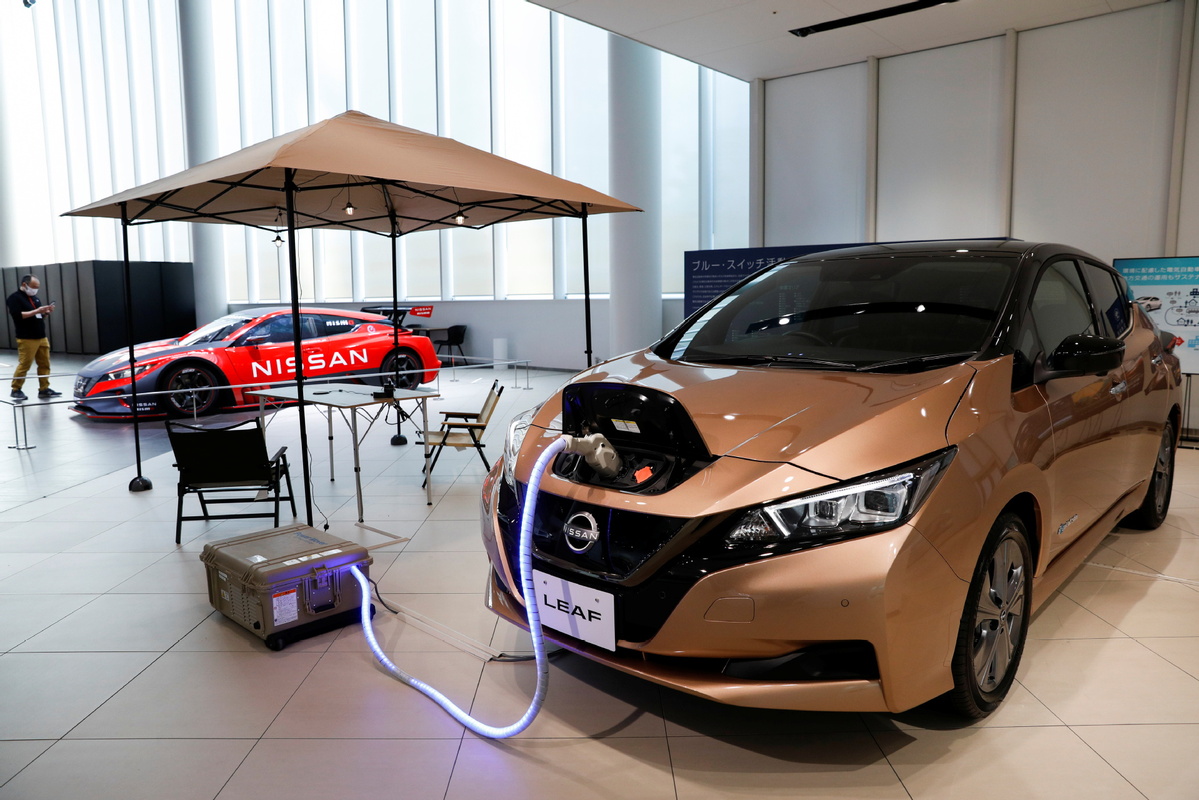Nissan expects 40% of sales in China to be electrified by 2026

Japanese carmaker Nissan expects four of 10 vehicles it sells in China to be electrified by fiscal year 2026, as part of its global electrification campaign unveiled on Monday.
The figure would be 75 percent in Europe and 55 percent in Japan by the same year. In the United States, the figure would be 40 percent by fiscal year 2030, said the third largest carmaker in Japan.
Nissan CEO Makoto Uchida said: "With Nissan Ambition 2030, we will drive the new age of electrification, advance technologies to reduce carbon footprint and pursue new business opportunities."
To the end, the carmaker will invest up to 2 trillion yen ($17.59 billion) over the next five years to accelerate the electrification of its vehicle lineup and rate of technology innovation.
The investment would enable Nissan to introduce 23 electrified models, including 15 electric cars, by fiscal year 2030.
They would help Nissan reach an electrification mix of more than 50 percent under its namesake marque and premium arm Infiniti.
Nissan said it will localize production of electrified vehicles and batteries in four of its major markets: China, Japan, the United Kingdom and the United States.
The carmaker aims to launch electric vehicles with its all-solid-state batteries by fiscal year 2028 and ready a pilot plant in Yokohama, Japan, as early as fiscal year 2024.
Among other things, the all-solid-state batteries will cut electric vehicles' charging time by two thirds, said the company.
Nissan said the all-solid-state batteries will bring the cost of battery packs down to $75 per kWh by fiscal year 2028 and aims to bring it further down to $65 per kWh to achieve cost parity between EVs and gasoline vehicles.
The company said it is establishing a global battery supply system to meet growing customer vehicle demand and support the growing number of EVs in use.
The company, in collaboration with its partners, intends to increase its global battery production capacity to 52 GWh by fiscal year 2026, and 130 GWh by fiscal year 2030.

